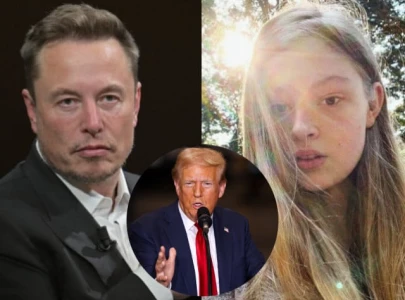
The autonomous 'foreign policy' mantra of the Indian government under Prime Minister Narendra Modi has come under significant scrutiny, especially with his recent efforts to navigate relations with both Russia and Ukraine simultaneously. Modi's visit to Ukraine on August 23-24 made history, as it marks the first time an Indian Prime Minister visited Ukraine since its independence from the Soviet Union in 1991. This visit occurred shortly after Modi's trip to Russia, where he attended the 22nd India-Russia annual summit. This balancing act by India, which prides itself on navigating complex geopolitical landscapes in line with national interests, raises important questions about the underlying motivations and implications of its foreign policy approach.
During Modi's visit to Ukraine, the stark reality of the ongoing conflict was highlighted when a Russian missile struck a children's hospital in Kyiv. This tragic event underscored the tension between India's simultaneous efforts to reinforce defence and economic relations with Russia. Despite this, Modi refrained from directly addressing the attack during his meeting with Russian President Vladimir Putin at the Kremlin. Instead, Modi emphasised the importance of resolving conflicts through dialogue rather than warfare that endangers innocent civilians. For Ukrainian President Volodymyr Zelensky, this was a particularly inopportune moment. Zelensky expressed his dismay at the optics of Modi's visit, criticising the Indian leader's decision to engage with Putin while Russia was actively committing such atrocities. On social media, Zelensky remarked: "It is a huge disappointment and a devastating blow to peace efforts to see the leader of the world's largest democracy hug the world's most bloody criminal in Moscow on such a day."
The shockwaves from this diplomatic manoeuvre extended beyond the immediate conflict zone, resonating with Western observers and raising questions about the Biden administration's tolerance of India's ongoing purchase of Russian arms and oil. Over the past two years, Russia has supplied 44% of India's total oil imports. This significant dependency on Russian resources has led to increased scrutiny from global powers, with a clear message being sent to India to reassess its relations in light of Russia's aggressive military actions.
Back home, Modi's visits to both Ukraine and Russia have been interpreted as a balancing act during a period when much of the world, guided by policies of appeasement towards the US, has either severed or significantly reduced ties with Russia. India, and more specifically the BJP, has showcased an independent and autonomous foreign policy stance. This approach mirrors the Nehruvian ideology of non-alignment, where India sought to remain neutral amidst Cold War rivalries. However, rather than embracing this historical legacy, the BJP has consistently criticised the Nehru family, accusing them of being overly sympathetic to minorities and branding them as anti-Hindu and less Indian. This narrative has been used to undermine the Nehru family's legacy, framing them as part of a broader anti-Hindu agenda supposedly adopted by Congress to attract Muslim votes.
Turning back to Modi's visit to Ukraine: did Modi offer his characteristic hug to Zelensky? Yes. Did he condemn the Russian invasion of Ukraine? No. Was this surprising? Not particularly. India has consistently abstained from UN resolutions condemning Russia's illegal invasion of Ukraine, reflecting a broader pattern of diplomatic reluctance.
Similarly, India's engagement with Zelensky's Peace Formula has been notably passive. The country dispatched a low-ranking official to the May Peace Summit in Switzerland, demonstrating minimal involvement. Additionally, Zelensky's suggestion to host the next Peace Formula summit in India remains unanswered, further underscoring India's tepid commitment to the peace process.
If these diplomatic gestures aren't merely public relations stunts, they can be characterised as hypocritical geopolitical maneuvering. India's selective diplomacy appears more concerned with maintaining strategic ties than with genuinely addressing global conflicts. This balancing act seems less about fostering peace and more about preserving geopolitical leverage.
While Europe has cut ties with Russia and faced significant gas shortages, leading countries like Germany to restart coal power plants, India has maintained its nuclear energy relationship with Russia despite its humanitarian rhetoric. The collaboration between India and Russia includes the development of reactors at Kudankulam, Tamil Nadu, with two units operational and plans for six more advanced units. This ongoing partnership likely involves a long-term uranium supply deal, underscoring India's significant dependence on Russian nuclear technology.
Moreover, India's acquisition of the S-400 missile system from Russia further highlights the inconsistencies in its foreign policy. Reports suggest that while India has offered some level of assistance to Ukraine, this support is minimal in comparison with its extensive and strategic ties with Russia. The duality in India's approach raises questions about the authenticity of its commitment to resolving the Ukraine conflict and addressing broader geopolitical challenges.
The contrast between India's public statements and its substantial engagements with Russia paints a picture of calculated hypocrisy in its international relations.


1731051730-0/BeFunky-collage-(33)1731051730-0-165x106.webp)


1731049366-0/BeFunky-collage-(31)1731049366-0-165x106.webp)









COMMENTS
Comments are moderated and generally will be posted if they are on-topic and not abusive.
For more information, please see our Comments FAQ